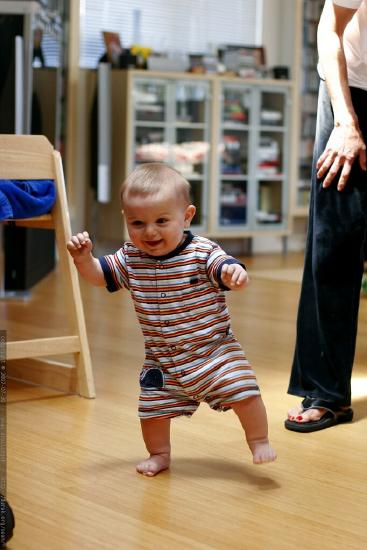1.1: Developmental Theory
- Page ID
- 129776
Socialization
Developmental Overview
This section will introduce human development for some and review human development foundations for others. Human development is divided into 3 main areas: Physical, Cognitive, and Affective. Together, these areas address the development of the whole child.
- Physical-motor development – this includes our gross motor, fine motor, and perceptual-motor development.
- Cognitive or intellectual development – this includes our thoughts and how our brain processes information, as well as how we utilize language so that we can communicate with one another.
- Affective development – this includes our emotions, social interactions, personality, creativity, spirituality, and the relationships we have with ourselves and others.
All three areas of development are of critical importance in how we support the whole child. For example, if we are more concerned about a child’s cognitive functioning we may neglect to give attention to their affective development. We know that when a child feels good about themselves and their capabilities, they are often able to take the required risks to learn about something new. Likewise, if a child is able to use their body to learn, that experience helps to elevate it to their brain. Below is a image of a child who is learning to walk. All areas of development is being impacted during this task. Additionally, as a society we value independence and caregivers work to facilitate the acquisition of these skills.

“If it isn’t in the body, it can’t be in the brain.”
- Bev Bos
Developmental Theories
A theory is defined as “a supposition, or a system of ideas intended to explain something, especially one based on general principles independent of the thing to be explained, a set of principles on which the practice of an activity is based.”
The theories we chose to include in this text form the underlying “principles” that guide us in the decisions we make about the children in our care, as well as provide us with insight on how to best support children as they learn, grow, and develop. The theories that have been selected were proposed by scientists and theorists who studied human development extensively. Each, with their own unique hypothesis, set out to examine and explain development by collecting data through observations/experiments. The theorists we selected, strived to answer pertinent questions about how we develop and become who we are. Some sought to explain why we do what we do, while others studied when we should achieve certain skills. Here are a few of the questions developmental theorists have considered:
- Is development due to maturation or due to experience? This is often described as the nature versus nurture debate. Theorists who side with nature propose that development stems from innate genetics or heredity. It is believed that as soon as we are conceived, we are wired with certain dispositions and characteristics that dictate our growth and development. Theorists who side with nurture claim that it is the physical and temporal experiences or environment that shape and influence our development. It is thought that our environment - our socio-economic status, the neighborhood we grow up in, and the schools we attend, along with our parents’ values and religious upbringing - that impact our growth and development. Many experts feel it is no longer an “either nature OR nurture” debate but rather a matter of degree; which influences development more?
- Does one develop gradually or does one undergo specific changes during distinct time frames? This is considered the continuous or discontinuous debate. On one hand, some theorists propose that growth and development are continuous; it is a slow and gradual transition that occurs over time, much like an acorn growing into a giant oak tree. While on the other hand, there are theorists that consider growth and development to be discontinuous; which suggests that we become different organisms altogether as we transition from one stage of development to another, similar to a caterpillar turning into a butterfly.
- Is behavior shaped by individual internal processes or by the role of society in shaping behavior?
Socialization is the means by which human infants begin to acquire the skills necessary to perform as functioning members of their society.
-What skills did you acquire to become a successful adult? Who and what was instrumental in shaping you to fit into society?
As suggested earlier, not only do theories help to explain key components of human development, theories also provide practitioners with valuable insight that can be utilized to support a child’s learning, growth, and development. At this time, we would like to mention that although theories are based on notable scientific discoveries, it is necessary to emphasize the following:
- No one theory exclusively explains everything about a child’s development.
- Theories are designed to help us make educated guesses about children’s development
- Each theory focuses on a different aspect of human development
- Theories often build on previous theoretical concepts and may seek to expand ideals or explore new facets.
- Theories may not be generally applied to all diverse experiences

